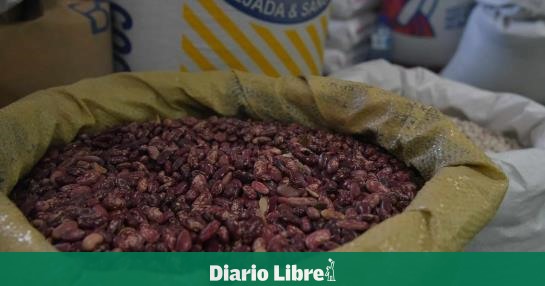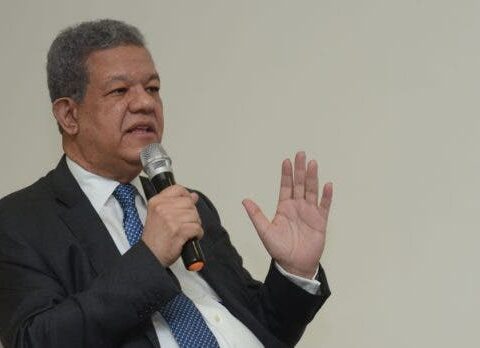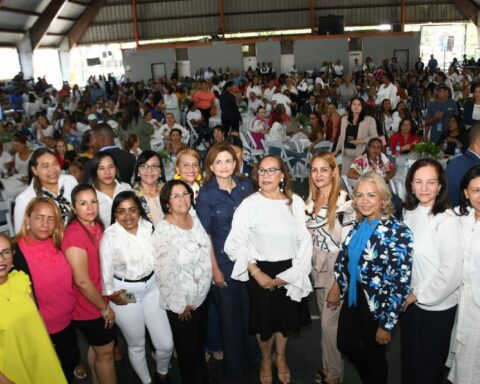While representatives of the merchants support the approval in the Senate of the bill that taxes with zero rate for six months to food products, with a new paragraph that empowers a commission to limit the items to be imported with quantitative caps, the business sector remains dissatisfied and so do the opposition parties.
Yesterday, the Minister of Agriculture, Limber Cruz, explained that an import commission for agricultural products, made up of the portfolio he represents, the Ministries of Industry, Commerce and MSMEs, and the Treasury, and the General Directorate of Customs, among others , they will filter the articles that will be imported with the tariff cessation rate to only bring what “the country needs and requires and has a deficit, not to bring what is abundant and what is in production.”
Iván García, president of the Dominican Federation of Merchants (FDC), agrees with the existence of a commission. “Because in this way the necessary quantities of agricultural products that do not affect local production will enter, specifically in the case of chickens,” he said. “In addition, the import of garlic from China and pinto beans must be limited, so that an exorbitant amount is not imported.”
The ordinary bill approved by the Senate the day before yesterdaywhich is provisionally taxed with zero rate The customs tariff of 67 food subheadings includes a modification on the limitation of quantitative limits to be imported, previously added by the deputies to the document originally submitted by the Executive Power on March 10.
“The Commission for Agricultural Imports may limit the importation of these products with quantitative limits, via quotas, and will determine the corresponding management mechanisms for each case,” says Paragraph III added to the original project that seeks to reduce the prices of a series of high-consumption foods in a context of inflation influenced by external factors, such as the war in Russia and Ukraine.
“For the products of the Technical Rectification -continues the Paragraph-, the Commission will establish an import quota prior to the application of the zero rate (0). The Commission will include, in its process of discussion and analysis for determination, the representatives of the corresponding productive sectors”.
José Díaz, president of the National Federation of Merchants of the Dominican Republic (Fenacerd), supports the approved project. However, Ricardo Rosario, president of the National Central of United Retailers (Cendu), although he supports that it be promulgated as passed by the Senate, analyzes that the problems go beyond the zero rate. “Because there is a shortage in international markets, which generates speculative prices that, even if you put zero ratein the end they will continue to reach you high in the Dominican Republic”, he indicated.
Among the 67 subheadings that will have zero rate for six months there are variations of beef, chicken and pork, powdered milk, beans, garlic, flour, oils, pasta and corn, among others.
Matches face off
The piece, submitted by the Executive Power on March 10, received the favorable vote of 19 of the 29 senators present, in a session marked by strong discussions between the members of the main party blocs.
Yesterday, from the Dominican Liberation Party (PLD), the secretary of agricultural affairs, Adriano Sánchez, pointed out that the approval “is unfortunate because with this action the high prices of food will not be reduced.”
He indicated that the government is promoting the law of zero ratewith which “food imports are privileged”, instead of producing in the immense “area of waste land and of high quality” existing in the country.
On this matter, the Legal Consultant of the Executive Power, Antoliano Peralta, pointed out that it is not the first time that the PLD has expressed negative opinions about the bill in question, for which he differs from them.
“There is a shortage in international markets, which generates speculative prices that, even if you put a zero rate on them, in the end they will continue to reach high prices in the Dominican Republic”President of the National Central of United Retailers
On his side, the spokesman for the bloc of deputies of the ruling Modern Revolutionary Party (PRM), Julito Fulcar, assured that the opposition parties did not want this law, not because they are interested in and concerned about national producers, but because their policy is to ensure that the government of Luis Abinader “does nothing in favor of the population.”
PLD deputy Mercedes Rodríguez assured that the PLD will be vigilant that the new regulations, if enacted, do not extend beyond the six-month period for which they were approved. The application of zero rate It will start once the law comes into force.
Last March, the general director of Internal Taxes, Luis Valdez Veras, assured that said transitory provision will not affect the collections projected by the government for this 2022.
The fiscal sacrifice that this measure will represent for the government would be about 267 million pesos, according to what was reported in that month by the president of the Finance Commission of the Chamber of Deputies, Francisco Javier Paulino, after meeting the commissioners with representatives of the Ministry of Finance.
During the debates of the law proposal in the National Congress, the business community firmly stated its opposition, arguing that it goes against national production. Yesterday, the National Council of Private Enterprise (Conep), via its executive vice president, César Dargam, observed that the project was not what was initially proposed. He said that the position of the business sector was a balance between seeking an answer for the consumer and not being affected by price fluctuations, but at the same time not affecting the productive sectors. Through a letter sent in March to the president of the Chamber of Deputies, the Association of Industries of the Dominican Republic indicated that “currently, imports of the products proposed in the bill come mostly from the United States at zero rate , one of the main exporters of these products in the world, thanks to DR-Cafta”. He added that the elimination of tariffs to countries with which the Dominican Republic does not have free trade agreements will cause local producers to be affected by imports from states where unfair trade practices such as dumping are applied.








